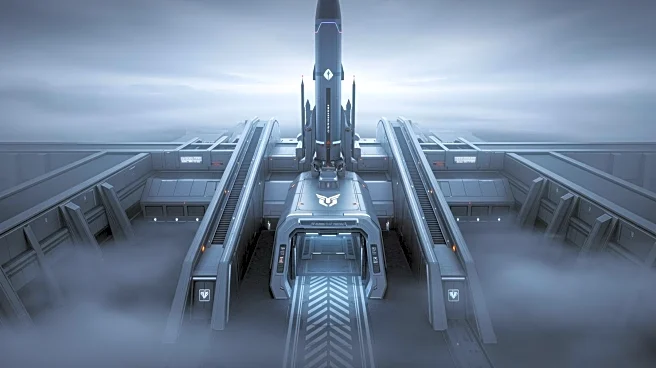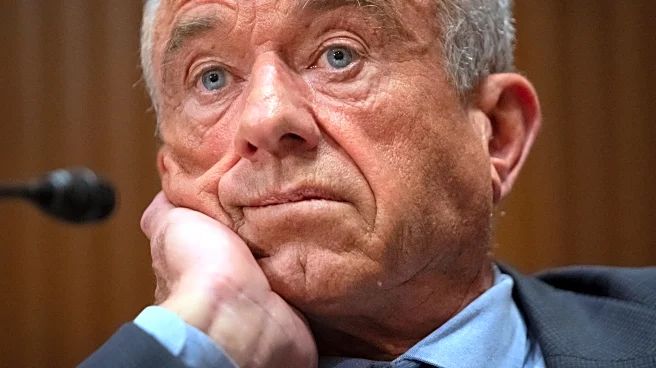What's Happening?
China has significantly expanded its missile production facilities since 2020, with over 60% of the 136 facilities linked to missile production or the Rocket Force showing signs of active expansion. This
development is part of a broader strategy to enhance its nuclear capabilities and deter potential threats from the United States. Satellite imagery and government notices reveal that the total footprint of these sites has increased by more than 21 million square feet. The expansion includes new towers, bunkers, and mounds, indicating various phases of weapon development. Analysts note that this move positions China as a global superpower, potentially marking the dawn of a new arms race. The Chinese government, under Xi Jinping, has invested billions in modernizing military hardware, transforming the People’s Liberation Army into a world-class fighting force.
Why It's Important?
The expansion of China's missile production facilities has significant implications for global security dynamics. As China boosts its nuclear capabilities, it challenges the existing balance of power, particularly with the United States and Russia, who together control about ninety percent of the world’s nuclear arsenal. This development could lead to increased tensions and a potential arms race, as the U.S. may feel compelled to enhance its own nuclear and defensive capabilities. The expansion also raises concerns about arms control and the risk of escalation into conflict among major powers. The U.S. response, including discussions about resuming nuclear tests, highlights the seriousness of the situation and the potential for a shift in decades-long testing policies.
What's Next?
The global community, particularly the United States, will likely monitor China's military developments closely. Diplomatic efforts may intensify to address the growing tensions and prevent escalation. The U.S. may also consider bolstering its defensive systems and engaging in strategic dialogues with allies to counterbalance China's growing military capabilities. Additionally, there may be increased calls for arms control agreements to mitigate the risks associated with the expansion of nuclear arsenals.
Beyond the Headlines
The expansion of China's missile production facilities underscores the broader geopolitical shifts and the potential for a new Cold War-like scenario. The increased military capabilities could alter regional power dynamics, particularly in Asia-Pacific, and influence global diplomatic relations. The situation also highlights the challenges of maintaining global security and the importance of international cooperation in addressing nuclear proliferation and arms control.











